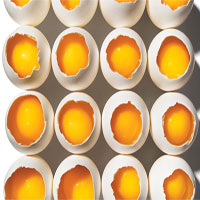Honey can flow in a long stream without drops, a phenomenon that has puzzled scientists for a long time.
Sergey Senchenko and Professor Tomas Bohr from the Technical University of Denmark in Lyngby found that long honey streams were more stable than expected. Not even a shake could break it.
The scientists published their research on the physics website arXiv, which is owned by Cornell University in Ithaca, New York.
The water flowing under the faucet often separates and drops down due to the influence of gravity and surface tension. Vibration, which mathematicians call spatial disturbance or perturbation, also plays a driving role in causing this discontinuity.

Gravity and surface tension do not break viscous liquids into tiny droplets.
But more viscous liquids, like honey or syrup, don’t work that way. These low-flowing liquids form long, thin, stable filaments that don’t drip, and for more than a century, scientists have been trying to understand why.
The Danish researchers imagine that a drop of honey squeezed from a faucet, falls for an infinitely long time and lasts endlessly.
They then used a mathematical model to test what would disrupt this fluid flow. Scientists have previously shown that gravity and surface tension do not break viscous liquids into tiny droplets.
But in this mathematical model, the researchers created a vibration and observed the process by which droplets and vibrations appear over time.
They found that the shaking had no effect on the fluid flow . This is because the droplet drifts fast enough to overcome the speed of the slow vibrations.
Regardless of how thick the liquid is, it is extremely stable, the team concluded.
Yvonne Stokes, a mathematician at the University of Adelaide in Australia, thinks honey will split into drops provided you shake it vigorously.
“A lot of the models we make predict that viscous fluids will break at some point, depending on viscosity and surface tension. However, extremely viscous fluids don’t actually break. into drops even though modeling shows they can,” she said.

